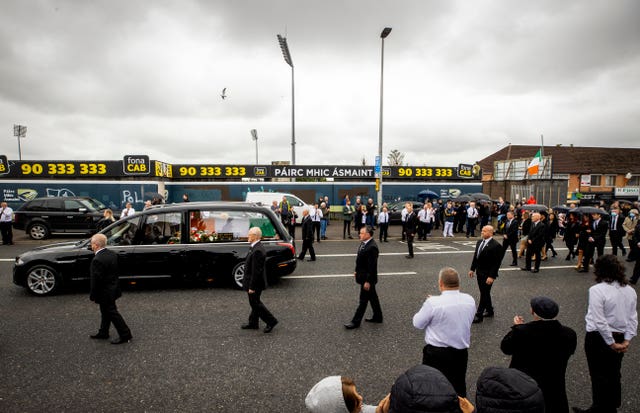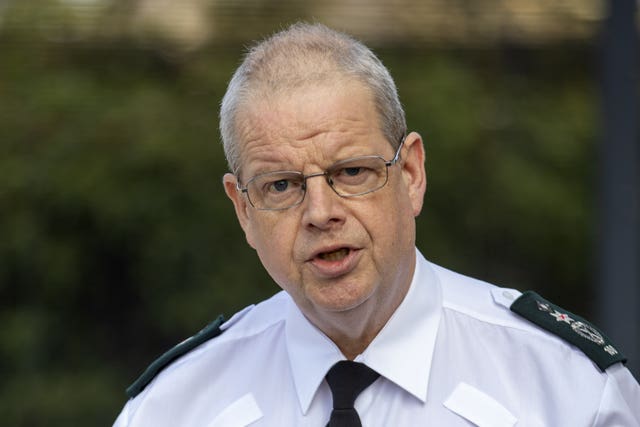Loyalist anger at post-Brexit trade rules among factors in NI disorder
It took an event unrelated to the Irish Sea border furore to set a match to simmering tensions.

The street disorder that has flared in various parts of Northern Ireland for more than a week can be attributed to a multitude of factors.
At its heart is loyalist anger at post-Brexit trading arrangements that have created economic barriers between the region and the rest of the UK.
For loyalism, Brexit’s Northern Ireland Protocol has undermined its place in the Union.
But it took an event unrelated to the Irish Sea border furore to set a match to resentment that has been simmering since the consequences of exiting the EU became a reality at the start of January.
In several loyalist working class areas, many still in the grip of the malign influence of paramilitary gangs, sporadic rioting has since flared.
Belfast, Londonderry, Newtownabbey, Carrickfergus and Ballymena have all witnessed scenes of violence that many hoped had been consigned to the history books.
There have also been bouts of disorder within republican areas in recent days.

For loyalists, the funeral of former IRA leader Bobby Storey last June hardened a long-standing perception held by many within their community that the institutions of the state afford preferential treatment to republicans.
For apparent confirmation, they pointed to police engagement with the Sinn Fein funeral organisers prior to an event that saw around 2,000 people take to the streets of west Belfast when tight limits on public gatherings were in place.
This interaction with the planners was one reason why senior prosecutors concluded any prosecution of Ms O’Neill and her colleagues was doomed to fail – the other being the “incoherent” nature of Stormont’s Covid-19 regulations at the time.

Earlier this week DUP First Minister Arlene Foster signalled she would no longer meet with Mr Byrne. She subsequently pulled back from that position.
Her initial reluctance to engage with the region’s police chief during a time of escalating street violence, and coming only weeks after she met with representatives of loyalist paramilitaries to discuss the Brexit fall-out, drew sharp criticism from political rivals.
Non-unionist parties have accused Mrs Foster and other unionist political leaders of stoking up tensions, not only in relation to the Storey funeral but also in respect of the Irish Sea border.
Amid the current unionist clamour for Mr Byrne’s head, and claims of “two-tier” policing, it is worth noting that two months ago the PSNI chief was facing similar claims of discriminatory behaviour from within nationalism.
Those were prompted by a controversial police operation in Belfast that saw a man badly injured in a loyalist gun massacre during the Troubles arrested at the scene of a commemoration event after officers intervened to probe suspected Covid regulation breaches.

The Protocol and funeral controversy have not created the loyalist perception that the system is weighed against them, but have built upon a narrative articulated by an increasing number within loyalism that the peace process – particularly the Good Friday accord of 1998 – has handed them a raw deal.
They cite underinvestment and deprivation in loyalist working class areas as further proof that they have missed out on the gains of peace.
Nationalists and republicans reject this premise, insisting their communities have experienced just has many problems with poverty and unemployment since the signing of the Good Friday Agreement.
Paramilitary elements are undoubtedly involved in much of the disorder witnessed across the region in recent days – either directly or by orchestrating young people to riot on their behalf.
However, in Newtownabbey and Carrickfergus an added factor is at play.
In those areas, the PSNI believes paramilitary involvement is less motivated by Brexit or the Storey funeral and more to do with a rogue faction – the South East Antrim UDA – reacting to recent police operations targeting its criminal empire.





